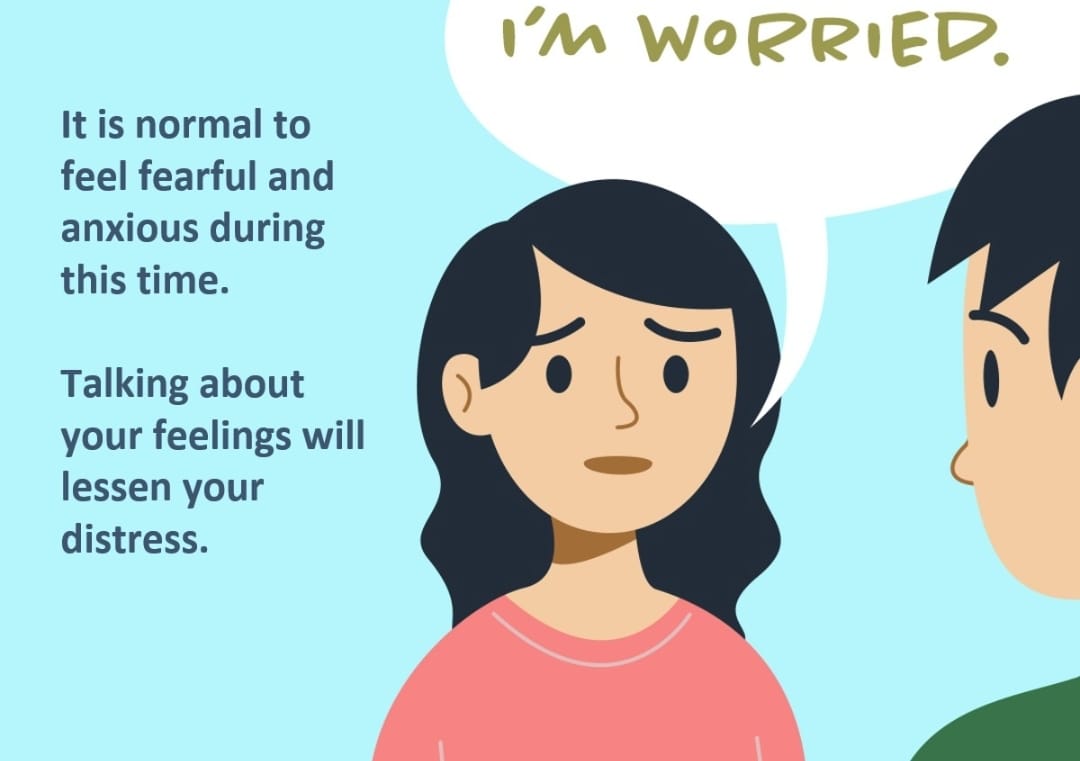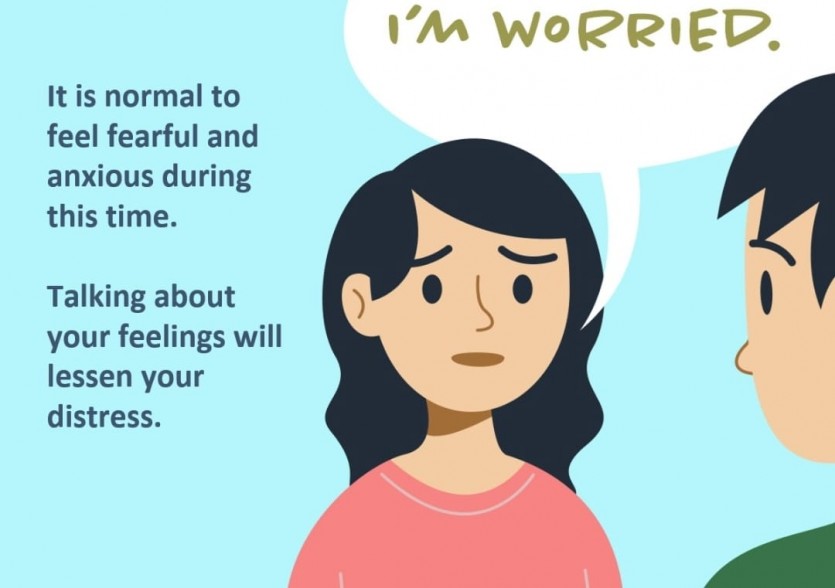페이지 정보
본문
DO NOT BE WORRIED ABOUT COVID-19

Recorded by JOCELINE
26/04/2022
Script
9 tips to help if you are worried about COVID-19 Coronavirus (COVID-19) has affected us all in different ways, and it's been a worrying time for lots of us. As the situation changes, you might feel nervous about the future or frustrated by the way your life has changed. It's important to remember it's OK to feel this way and that everyone reacts differently. For most of us, these difficult feelings will pass. There are simple things we can do to help manage the way we feel, and take care of our mental health and wellbeing. These tips can help improve your mental health and wellbeing if you are worried about COVID-19. 1. Stay connected with people Maintaining healthy relationships with people we trust is important for our mental wellbeing. We all need to feel connected, so keep in touch – whether it's with people you see often or reconnecting with old friends. There are lots of different ways to connect. You could schedule time each week to meet in person, speak over the phone or make time for regular video calls. Social media is another good way to stay connected, but make sure you take regular breaks from your devices – and switch off before bed. 2. Talk about your worries The COVID-19 outbreak is unlike anything we have experienced before, and it's normal if you have felt worried, scared or helpless. Remember: it's OK to share your concerns with others you trust – and doing so may help them too. If you cannot speak to someone you know or if doing so has not helped, there are plenty of helplines you can try instead. 3. Support and help others Helping someone else can benefit you as well as them. Having an understanding of other people's concerns, worries or behaviour is a great way to show your support. Try to think of things you can do to help those around you. Is there a friend or family member nearby you could regularly check in with? If you're not local to them, try phoning or messaging instead. 4. Look after your body Our physical health has a big impact on our mental wellbeing. If we are not feeling good, it can be easy to fall into unhealthy patterns of behaviour that end up making us feel worse. Try to eat well-balanced meals, drink enough water and exercise regularly. Avoid smoking or drugs, and try not to drink too much alcohol. Going for a walk, run or bike ride can really help lift your mood and clear your mind – or you could try an easy 10-minute home workout. 5. Stick to the facts There is still lots of information circulating about COVID-19, but sometimes this might feel overwhelming or conflicting. Think about how inaccurate information could potentially affect others too, and try not to share anything without fact-checking against credible sources. You might also want to consider limiting the time you spend watching, reading or listening to news and information about COVID-19, including on social media. 6. Stay on top of difficult feelings Concern about the COVID-19 outbreak is normal. However, some people may experience intense anxiety that can affect their daily life. Try to focus on the things you can control, such as your behaviour, who you speak to, and where and how often you get information. It's fine to acknowledge that some things are outside of your control, but if constant thoughts about COVID-19 are making you feel anxious or overwhelmed, try some ideas to help manage your anxiety or listening to an audio guide. 7. Do things you enjoy Feeling worried, anxious or low might stop us doing things we usually enjoy, but focusing on your favourite hobby, relaxing or connecting with others can help with anxious thoughts and feelings. If you do not have any hobbies right now, think about trying something new. There are lots of free tutorials and courses online, or you could join a new club. 8. Focus on the present Focusing on the present, rather than worrying about the future, can help with difficult emotions and improve our wellbeing. Relaxation techniques can also help some people deal with feelings of anxiety, or you could try some breathing video. 9. Look after your sleep Good-quality sleep makes a big difference to how we feel mentally and physically, so it's important to get enough. Try to maintain regular sleeping patterns and keep up good sleep hygiene practices – like avoiding screens before bed, cutting back on caffeine and creating a restful environment.
첨부파일
-
ANXIETY.mpeg (5.6M)
0회 다운로드 | DATE : 2022-04-26 17:14:35

